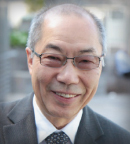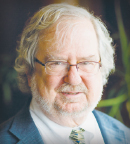
Tak W. Mak, PhD, FAACR
Tak W. Mak, PhD, FAACR, was recently announced as this year’s winner of the Pezcoller Foundation–American Association for Cancer Research (AACR) International Award for Extraordinary Achievement in Cancer Research. Dr. Mak is Senior Scientist at the Princess Margaret Cancer Centre, University Health Network; Professor in the Departments of Medical Biophysics and Immunology at the Temerty Faculty of Medicine at the University of Toronto; and Professor in the Department of Pathology at the University of Hong Kong. He is being recognized for leading the group that cloned the human T-cell receptor beta chain, which has helped stimulate a remarkable series of advances in cancer immunology research.
Dr. Mak’s group was among the first to generate genetically modified mouse models to study the molecular mechanisms driving immune system development and control and how perturbations to such processes contribute to tumorigenesis. His examinations of these models helped elucidate critical intracellular signaling pathways that govern immune responses, malignant cell transformation, cellular survival, and programmed cell death.
Impactful Research
Discoveries by Dr. Mak have had substantial translational impacts—his team demonstrated that CTLA-4 is a negative regulator of T-cell activation, a finding that James P. Allison, PhD, later leveraged to conceptualize and design the first immune checkpoint inhibitor employed as a cancer therapeutic. Dr. Mak’s characterization of T-cell receptors has also paved the way for the development of chimeric antigen receptor T-cell technology.

James P. Allison, PhD
Dr. Mak’s work on oncogenic IDH enzymes led to the development of IDH1/2 inhibitors and their subsequent approval for the treatment of acute myeloid leukemia. His group is currently investigating how various IDH mutations are capable of driving brain and blood cancer malignancies and confer the ability of cancer cells to survive under harsh environmental conditions that would normally result in cell death. He has recently bolstered the concept that immune responses are connected directly to the nervous system through effector T-cell secretion of the neurotransmitter acetylcholine.

